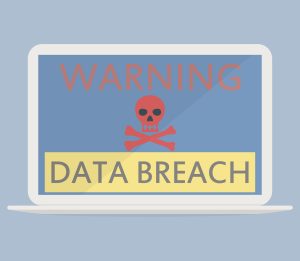Data breaches are renowned for the havoc they can cause. Today’s headlines are filled with firms facing massive fines and experiencing loss of revenue and reputation due to data leaks and loss.
While preventative measures are always preferable to a reactive approach when dealing with a data leak, in the following sections we’ll outline some important information every firm must understand when a breach takes place.
What is a personal data breach?
The definition of a personal data breach is when security measures or protocols are bypassed unlawfully or not adhered appropriately, leading to the destruction, amendment, or unauthorised exposure of personal data. This list includes breaches that occur as a result of both deliberate and accidental causes.
Examples of personal data breaches might include access to information by a third party without authorisation, accidental or deliberate action/inaction by a data processor or controller, transmitting personal data to the incorrect address, the theft of devices where data is stored or accessible from, and data being changed without permission.
Risk assessment and initial steps
When a breach is identified by a firm, it must assess the potential risk of the incident. If an assessment arrives at the conclusion that data has been exposed, action must be taken swiftly. This will typically involve isolating, locking down or shutting down access to a company’s system to stop further threats. A forced password reset is typically a key measure most firms will take.
Notifications following a data breach
The next stage is to disclose the breach. All data subjects – be they staff, suppliers, customers or clients – must be notified of a breach that involves their personal information. They should be informed of the types of data exposed – such as names, dates of birth or financial details – and advice on protective measures they should take, which might include checking their credit report or changing their passwords.
Companies must also report data breaches to the UK’s data regulator, the Information Commissioner’s Office (ICO). In most cases, an enterprise experiencing a breach will have 72 hours to make a report, but in some cases like UK trust or communication service providers, the term is shorter with notifications necessary within a 24-hour window.
Mitigation measures
After a data breach, companies must investigate incidents to ensure that they cannot happen again. If the breach was caused by a vulnerability, stronger security measures must be adopted, and if it was a user error, further training must be given.
Protective aid against data breaches
At Galaxkey, we have built a secure solution that equips enterprises with useful tools to defend data against breaches and leaks. Designed with the end user in mind, our system makes it simple to safeguard confidential files and communication with cutting-edge three-layer encryption. If data is erroneously shared or company networks are infiltrated by attackers, sensitive and private records will remain indecipherable, preventing a leak. Additionally, our platform never stores passwords and has zero vulnerabilities for hackers to exploit.
Get in touch with our experienced team today and book a free 14-day trial and take every step you can to avoid facing a breach.


